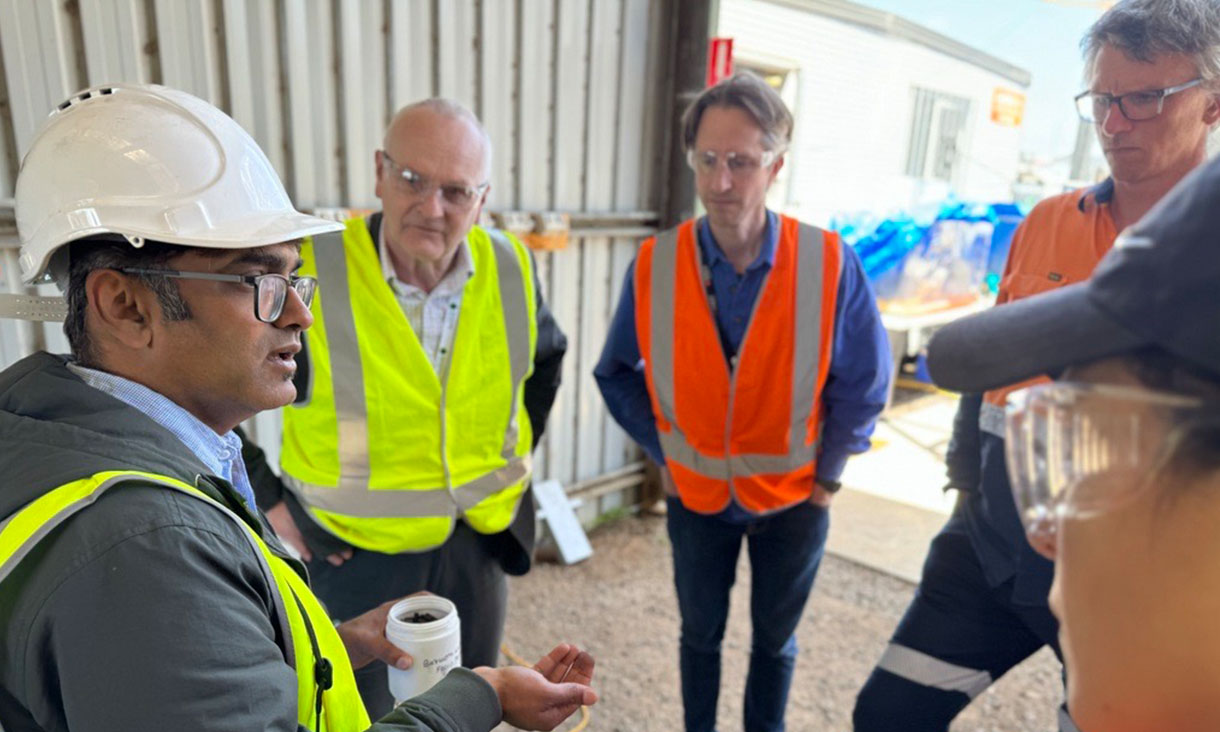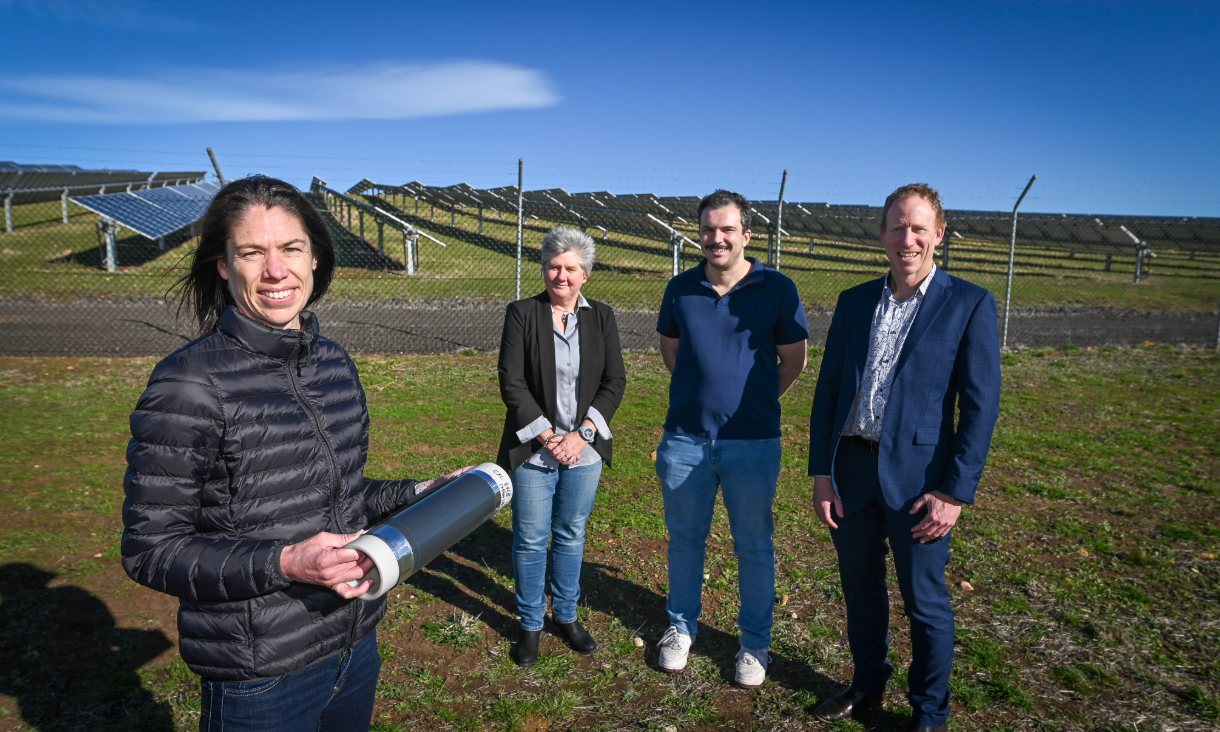Researchers at RMIT and Deakin universities are working with Barwon Water to create valuable agricultural and manufacturing products out of common waste streams.
The project will eventually transform tens of thousands of tonnes of biosolids from wastewater treatment and household wastes into products for commercial use each year.
With many of Australia's landfills nearing capacity - and organic waste being the second biggest contributor - there are lots of ways we can 'waste not, want not'.
The project will support Barwon Water to develop facilities at its Black Rock and Colac water reclamation plants to produce biochar - a charcoal-like material made from controlled heating of organic matter.
It will explore the optimal formulations for biochar for the Geelong region's soil conditions to produce high-value cereal and legume crops.
RMIT University biochar expert Professor Kalpit Shah said he was delighted to be working with Barwon Water and Deakin to transform biosolid waste into biochar.
"The product will be suitable for use in the energy and agriculture sectors and contribute to the development of Australia's circular economy," he said.

RMIT's Professor Kalpit Shah (left) is a distinguished chemical engineer with deep expertise in developing wastewater treatment solutions with industry.
The many superpowers of biochar include increasing soil nutrients and moisture available to boost plant growth, as well as supporting the microorganisms living in the soil around plant roots.
Using a combination of lab, greenhouse and farm trials at Deakin University's Waurn Ponds Campus, different biochar formulations will be made to support soil fertility and crop yields.
Detailed assessments of the costs, benefits and potential impacts of its use in agriculture will also be explored.
Barwon Water Managing Director Shaun Cumming said the project would unlock high-value commercial applications for biochar at the Black Rock water reclamation plant in Connewarre.
"Through our Regional Renewable Organics Network projects, we're supporting building a circular economy in the Geelong region, revolutionising waste management to turn organic waste into sustainable products like biochar, which enrich soils and capture carbon, benefiting local farmers and households," he said.

Deakin's Associate Professor Nolene Byrne with Professor Wendy Timms, Dr Aydin Enez and Barwon Water Managing Director Shaun Cumming.
But biochar's superpowers go far beyond improving soil health.
Deakin's Associate Professor Nolene Byrne said the project will also explore how biochar could be introduced as a sustainable source for Australia's battery supply chain.
"We're exploring if biochar can be used as the anode active material within sodium-ion batteries," she said.
If successful, sodium-ion batteries could become a safer, cheaper alternative to the lithium-ion batteries we use to store solar energy in our grid and home batteries.
"Biochar is looking promising as a next generation battery material, and through this project we'll continue to explore what biochar composition will enhance battery performance," she said.
Barwon Water's Regional Renewable Organics Network projects aim to process approximately 60,000 tonnes of biosolids from Barwon Water's water reclamation plants, 40,000 tonnes of organic food and garden waste, 14,000 tonnes of municipal green waste and commercial and industrial organic waste annually.
Barwon Water Managing Director Shaun Cumming said it's exciting to have leading thinkers from the water industry, Deakin and RMIT working together to explore how waste can be used to make our communities more sustainable.
"We're delighted that through this collaboration we'll be leading the charge to establish Victoria as a hub for the development of sustainable technologies, underscoring the vital role the water sector can play in recycling resources for the circular and new energy economy," he said.
Backed by a $50 million grant from the Australian Government's Trailblazer Universities Program, with industry and university support, REACH is facilitating the development of greener supply chains and the move to a circular economy.






